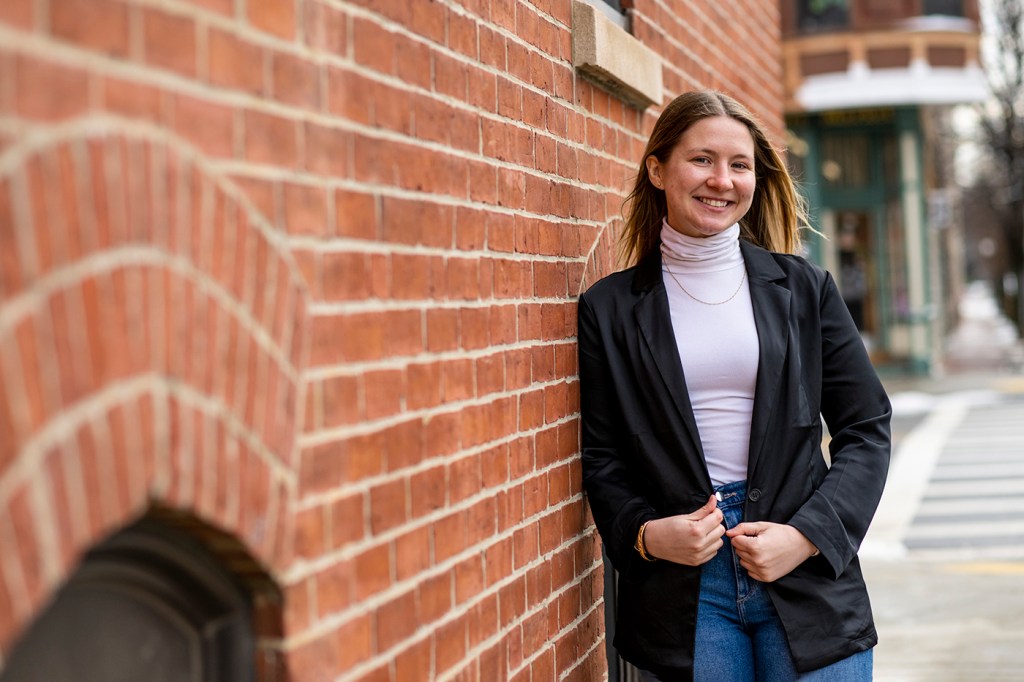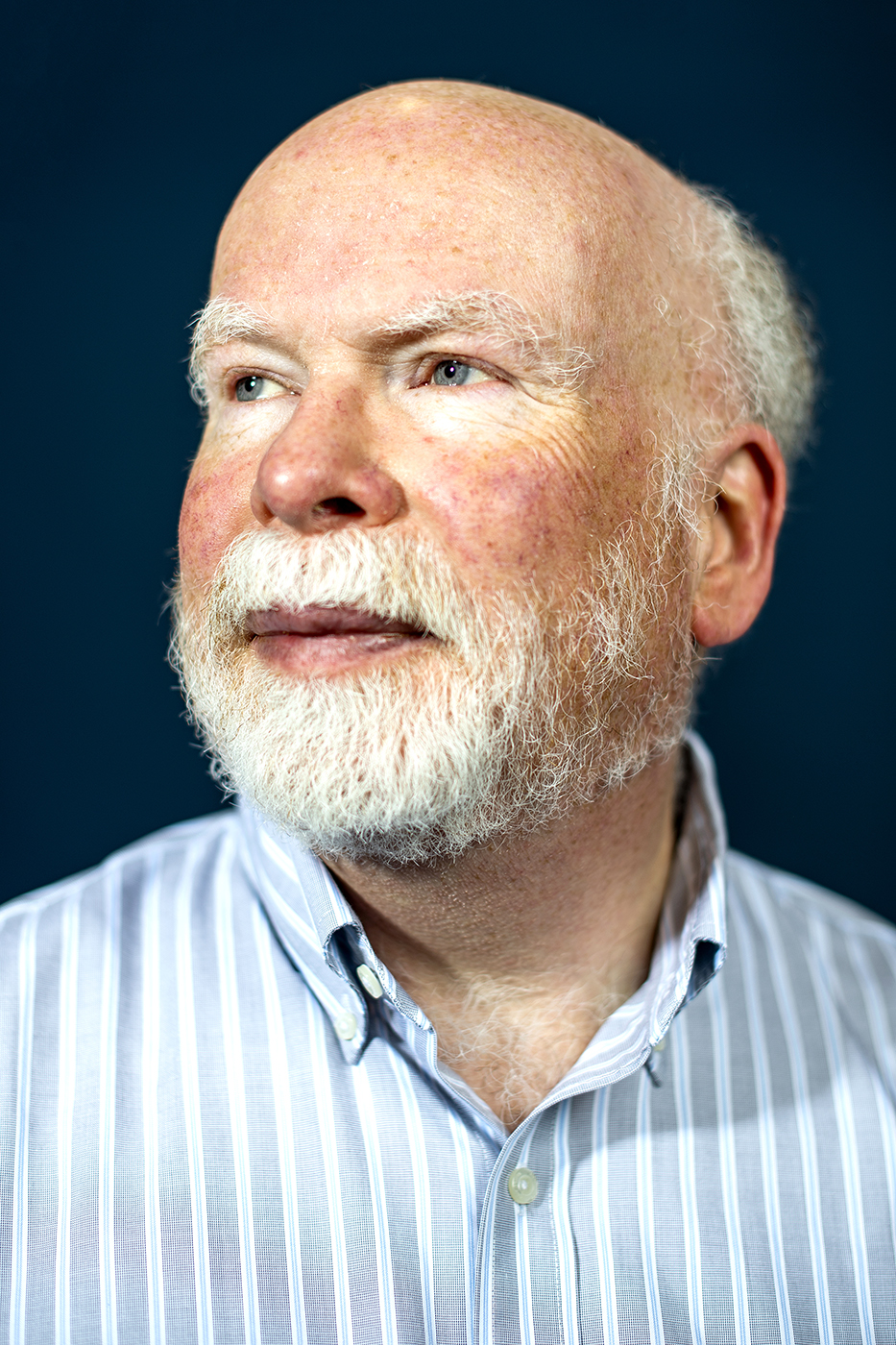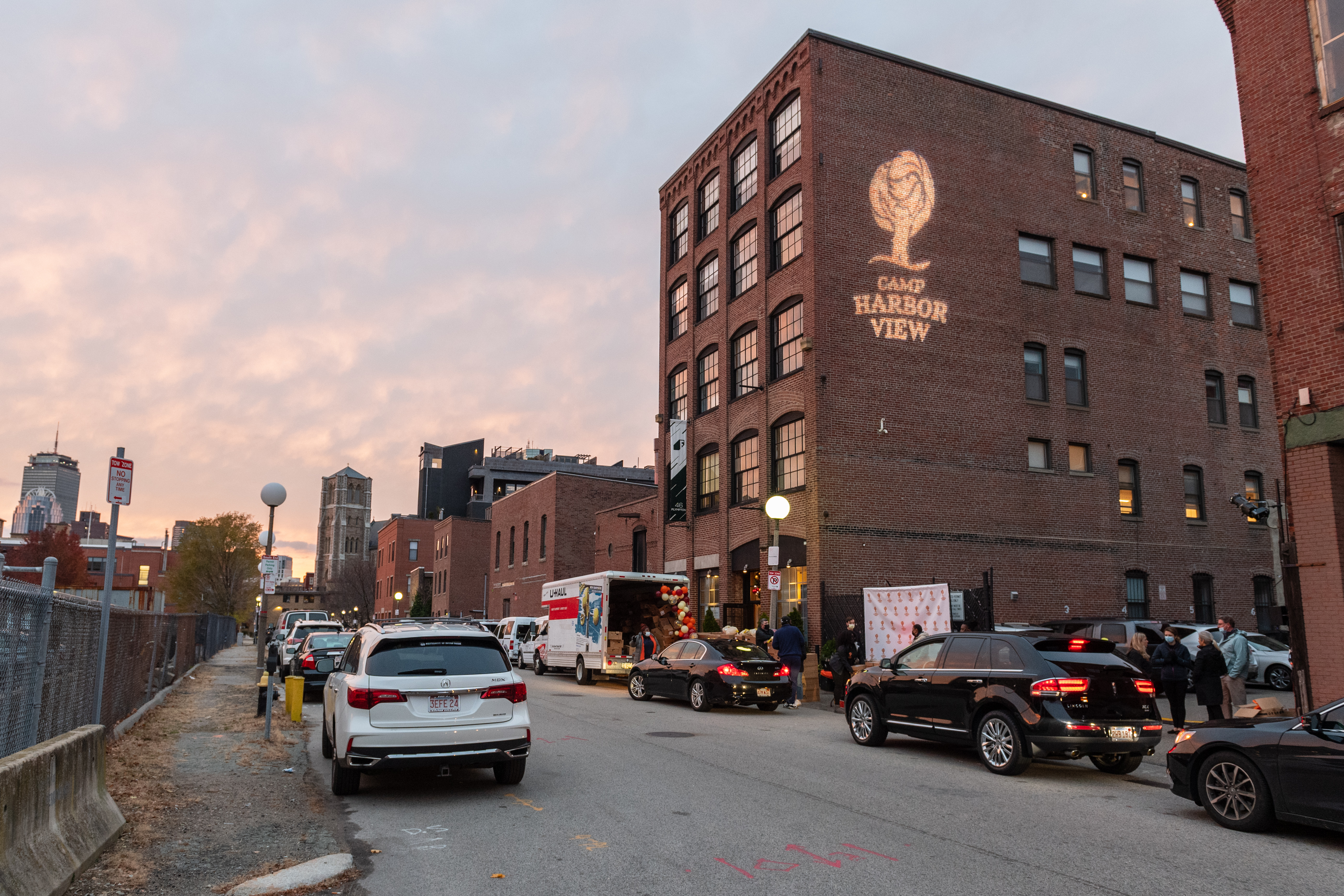Northeastern graduate leads the charge on guaranteed basic income

When Abbey Holland graduated from Northeastern University in 2022, she knew she wanted to make a difference in her community. Now a coordinator for Boston-based nonprofit Camp Harbor View’s guaranteed basic income program, Holland is fulfilling her dream.
More than that, she’s leading the charge on guaranteed basic income programs, which have found increasing support nationwide since the start of the COVID-19 pandemic.
Camp Harbor View’s program, which provides $583 in unrestricted cash funds every month to 50 families, is in the middle of its two-year pilot, but it’s already been a success for the families in the program, Holland says.
“There are, luckily, positive financial impacts, like being able to save more and paying down debts and working toward financial goals,” Holland told Northeastern Global News. “The families who are receiving the money are experiencing less psychological stress and more stable family environments, which is really great.”



Camp Harbor View, which funds its programs using donations from individuals, corporations and foundations, kicked off the program in September 2021, but it’s far from the first guaranteed basic income program. The idea for guaranteed, or universal, basic income has a long-history that stretches back to the concept of a negative income tax, proposed by British writer Juliet Rhys-Williams in the 1940s and popularized in the U.S. by conservative economist Milton Friedman in 1962. President Richard Nixon, through his proposed Family Assistance Plan, and 1972 Democratic presidential nominee George McGovern attempted to bring the concept of a negative income tax to the public, but both failed.
More recently the idea, revived as universal basic income, has picked up steam. As the pandemic revealed cracks in the welfare system, cities like Los Angeles, New Orleans, Denver and even Birmingham, Alabama, launched universal basic income pilot programs. Even the federal government provided direct cash payments during this time, albeit on a less regular basis.
The name changed but the purpose was the same: to give low-income people a safety net that can help them afford the most basic necessities, like food and shelter.

“The main benefit is one of lifting people out of poverty and providing a real solid base of guaranteed income that people can depend upon,” says Robert Triest, chair and professor of economics at Northeastern.
“Over several decades now, we’ve experienced a very substantial increase in income inequality in the United States as well as in many other advanced countries,” Triest adds. “There’s a sense that we need to do something about this and that there’s too large a degree of inequality in economic well-being.”
Boston-area local governments in Chelsea and Cambridge kickstarted programs, and, in lieu of Boston offering a similar program, Camp Harbor View followed suit. Holland, who has worked with Camp Harbor View since she was a service learning tutor in 2018 and later a guaranteed basic income co-op in 2021, leaped at the opportunity to join the team full-time. Her capstone as a human services major was focused on the history of public services and “the gaps that need to be filled”––and how programs like the one at Camp Harbor View could fill them.
“Based on pilots that I looked at and journals that had been published and different information that I was able to find, [I came up with] what I thought was a possible ideal guaranteed income program,” Holland says. “Being able to do that was very cool, but it still felt very far away. … To now turn around and have my hands on something real, it’s been a really cool progression.”
Holland’s capstone and classroom experience, combined with her co-op at Camp Harbor View, primed her for the challenge of coordinating a fledgling program.


Camp Harbor View serves mostly Black and brown families across Boston through its summer camps, food distribution and holiday assistance program. But Holland says the guaranteed basic income program has provided a different level of support, one that could “change the ways that social services work and can be provided.”
“One mother was telling me that because she’s trying to budget better, her family is eating less takeout so they’re eating more nutritious food and they’re getting to cook meals together and her kids are able to learn those skills because she can afford to buy more groceries,” Holland says.
Although there’s been a groundswell of support around universal basic income programs, there are still critics. One of the main criticisms has historically been how UBI or GBI programs would impact the workforce, partially based on the results of earlier experiments in cities like Seattle and Denver during the 1970s, according to Triest.
“There was a concern at the time that if you gave people money, then they wouldn’t want to work,” Triest says. “The experiments generally found there is a modest reduction in labor supply, although not one that was catastrophic.”
Holland has heard similar criticisms, but the community at Camp Harbor View has been nothing but positive. Families are already asking about how the program can extend and expand to help even more people.
“Being able to work on a program that is contributing to a really amazing body of work that is pushing forward guaranteed income and showing that it does work and it’s meaningful and should be invested in, I am very grateful for that,” Holland says.
Cody Mello-Klein is a Northeastern Global News reporter. Email him at c.mello-klein@northeastern.edu. Follow him on Twitter @Proelectioneer.






